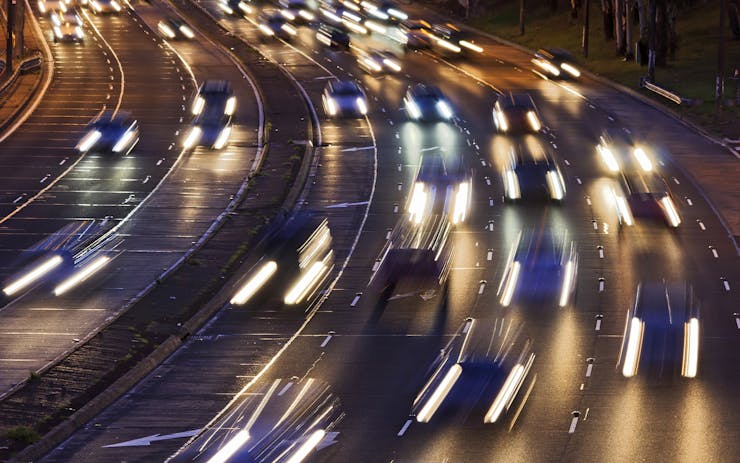Mobile drug testing, or MDT, is on the rise in Australia. Police in all states and territories can now require drivers to provide a saliva sample to be tested for cannabis and amphetamines. In the country’s most populous state, New South Wales, authorities boast that by 2017 there will be three times the number of tests on the state’s roads.
At the same time, a number of “drugged driving” campaigns have drawn criticism and stoked confusion. To help clarify, this article sets out penalties that accompany a positive roadside drug test in various Australian states. Note that all penalties are for first-time offenses.
State of Queensland (QLD)
Police in Queensland are able to test drivers for cannabis in conjunction with so-called random breath testing (RBT) or as a standalone test. The presence of any cannabis whatsoever in a sample is an offense, carrying a maximum penalty of AU$1,706 and a maximum prison term of three months.
State of Western Australia (WA)
Western Australia police can conduct roadside testing at any place and time following an alcohol breath test. Driving with the presence of cannabis carries a maximum penalty of AU$500 and three demerit points. Driving while impaired has a maximum penalty of AU$2,500 and a minimum disqualification period of 10 months.
According to Western Australia’s Road Safety Commission, THC can only be detected by its roadside tests for up to four hours after use.
State of Victoria (VIC)
Victorian police are among the most active roadside drug testers, conducting 3,000 drug tests per month, and according to the department, 1 in 18 tested drivers return a positive result. In Victoria, the penalty for failing a roadside screening test is up to AU$1,865 and a minimum 3-month license suspension. Victoria also has steeper penalties if you test positive for both alcohol and prescription drugs.
State of New South Wales (NSW)
In New South Wales, police conduct roadside oral fluid drug testing, with an alcohol breath test first. The Road Transport Act 2013 has two relevant offenses: “Presence of certain drugs (other than alcohol) in oral fluid, blood, or urine” and “Use or attempted use of a vehicle under the influence of alcohol or any other drug.” The first offense carries a maximum fine of AU$1,100 and a minimum license disqualification of three months. The second carries a maximum fine of AU$2,200 and up to 9 months in jail.
Shop highly rated dispensaries near you
Showing you dispensaries nearState of Tasmania (TAS)
In Tasmania, police conduct targeted oral fluid tests, confirming positive results with blood tests. In 2013–14, 70 percent of submitted tests were positive for cannabis. Penalties include a maximum fine of AU$1,570, a minimum disqualification period of three months, and a possible jail term of three months.
Northern Territory (NT)
Roadside drug testing began in the Northern Territory only this year, and even a first-time offender could end up being hit with a maximum three-month prison term or a fine of up to AU$400.
Australian Capital Territory (ACT)
In the Australian Capital Territory, the maximum penalty for having cannabis in your blood or oral fluid is AU$1,400. Refusal could be even worse, as can carry a six-month prison sentence. Since their introduction, the ACT’s drugged driving laws have been a flashpoint for criticism from lawyers and civil liberties groups.
State of South Australia (SA)
South Australian police can conduct roadside drug tests of drivers—as well as of supervisors of learner drivers—at any time. The penalties aren’t as harsh as other states, however, as a positive test carries a maximum AU$900 fine and four demerit points. Notably, SA law doesn’t let police use a positive test for anything other than driving-related offenses.
Future Problems
“You could be a smoker and not drive, or a driver and not smoke.”
Earlier this year, a court in Lismore, NSW, reviewed drugged driving provisions in the case of Joseph Carrall. Carrall, who was accused of having an illicit drug in his blood while driving, found not guilty on the grounds that he relied on advice from police that the test would not detect use from a week earlier.
While Carrall got off, the case highlights a problem with existing drugged driving laws: Preventing people from driving cars while impaired is generally viewed a good thing, but punishing people for driving days after they could reasonably be said to be under the influence seems absurd. If cannabis stays in an individual’s system for days or weeks after the effects of THC wear off, even occasional consumers could test positive at any time.
The arresting officer’s testimony in Carrall’s case was telling: “A line had been drawn,” the officer said. “You could be a smoker and not drive, or a driver and not smoke.”
The purpose of these laws needs to be closely examined. If they aren’t concerned with impairment, can they truly be said to improve road safety? And how should gains in safety be weighed against the negative effects of penalizing drivers no longer under the effect of cannabis? As medical marijuana gains traction across Australia, state parliaments will need to re-examine the wisdom of using roadside tests as a weapon in the ongoing war on drugs.





